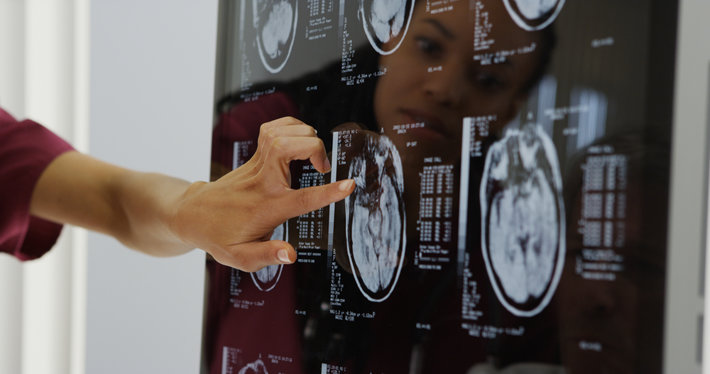Alcohol Addiction Information

The intoxicating ingredient in beer, wine or liquor is ethyl alcohol, or ethanol. The various forms of alcohol are produced by fermenting yeast, starches or sugars. Alcohol is one of the oldest known intoxicants and its use results directly or indirectly in tens of thousands of deaths every year in the United States alone.
What are the Consequences of Alcohol Use?
Though the consumption of alcohol is frequent in society today, there are few legitimate benefits to such consumption. There is, however, a great amount of risk. When people drink, there is an immediate detrimental effect on the physical and cognitive abilities of the individual. While it is a popular notion that one can drink in moderation, the truth is that the amounts that would be considered moderate is far less than the consumption habits of the majority. Furthermore, this extended alcohol use can have detrimental effects on the user’s relationships, career, financial condition, legal condition and health.
Effects of Alcohol on the Mind

Because alcohol is a central nervous system depressant, alcohol impairs cognitive function and alters one’s mental state. For some, drinking alcohol creates excitement. For others, it acts as a sedative. Typically, alcohol consumption at lower levels appears to act as a stimulant while higher levels have a sedative effect.
People who drink may also experience significant mood changes. Some may become elated and experience a loss of inhibitions, which can lead to poor judgment and decisions. Others may become irritable and even aggressive. Other effects of alcohol use on one’s mind include slowed reaction time, difficulty remembering, confusion, and general dullness. These mood changes are often why alcohol is used recreationally, but the effect is only temporary.
Consequences of Alcohol Use on Relationships

Alcohol use can have a range of adverse effects on one’s relationships. Such effects are particularly pronounced in one’s familial and domestic life. For example, in the United States, alcohol is believed to be a factor in more than half (55 percent) of all incidences of domestic violence and abuse.
And alcohol use in the family impacts more than just domestic partners. More than ten percent of U.S. children live with at least one parent who has a drinking problem. When a child grows up around a primary caregiver who also uses alcohol, that can have a negative and lasting effect on that child’s development.
Harmful Effects of Alcohol Use on Careers

Alcohol abuse and its effect on careers and the workplace, in general, are quite significant. Alcohol and drug use combined contribute to about 65 percent of workplace accidents. Furthermore, about 38 to 50 percent of all workers’ compensation claims are related to alcohol abuse or drug use in the workplace.
And that’s just touching on the effect of alcohol use in the workplace. What about the personal effects, and what that can do to one’s career? Alcohol use makes it so that one cannot perform at peak levels in any instance, career-related tasks included. People spend years, building a career they can be proud of. They often spend tens of thousands, sometimes hundreds of thousands of dollars to get the education they need to excel at that career. All of that can be ruined very quickly when one begins drinking to excess.
Financial and Economic Consequences of Alcohol Use

Alcohol’s effect on one’s financial situation can be severe. Someone who is addicted to alcohol will easily spend thousands of dollars per week on the substance.
Alcohol addiction also has a negative impact on the economy. Excessive drinking costs the United States about $250 billion per year. Those costs come from lost workplace productivity, healthcare expenses, criminal justice costs, and motor vehicle crashes.
Legal Consequences of Alcohol Addiction

Alcohol has a long history of causing legal problems for those who consume it. In fact, from 1920 to 1933, the 18th Amendment to the U.S. Constitution banned the manufacture, transportation, and sale of intoxicating liquors. Though Prohibition lasted only 13 years, it is still a bold reminder of the moral, financial, social, and health-related reasons why people should think twice before drinking.
Today, alcohol use still has the potential of creating legal consequences. In 2018, 1,001,329 American drivers were arrested for driving under the influence. That’s one arrest for every 227 licensed drivers in the U.S.
What are the Short and Long-Term Effects of Alcohol Use?
Alcohol consumption has both immediate and long term effects on the body. Alcohol use affects every organ and is classified as a central nervous system depressant. While the liver metabolizes alcohol, it can only handle small amounts of alcohol at a time. Excess amounts of alcohol are left circulating throughout the body, affecting the brain, heart, lungs, and other organs. The more one drinks, the more pronounced these effects will be. Some of the physiological symptoms of alcohol consumption include dilation of blood vessels, impaired cognitive ability, nausea, vomiting, and blackouts.
Short term effects of Alcohol Use
Drinking too much on one occasion or drinking too much over time both harm one’s health. The short term effects (in the moment of drinking or shortly after) of alcohol include:
- loss of coordination
- inhibited cognitive function
- poor decision-making
- short-term memory loss
- slurred speech
- blood-shot eyes
- nausea
- vomiting
- unconsciousness
- damage to the liver, kidneys, and other internal organs
Alcohol poisoning is a form of overdose. It occurs when an individual drinks an excessive amount of alcohol in a short period of time. It is a medical emergency and can result in coma or death. The signs and symptoms of alcohol poisoning include:
- Disorientation
- Vomiting
- Seizures
- Slow or irregular breathing
- Blue or pale skin
- Low body temperature
- Blacking out and can’t be awakened
Anyone experiencing these symptoms should seek emergency medical attention immediately.

Long term effects of Alcohol Use
The long-term effects of alcohol consumption are also quite concerning. Alcohol consumption interferes with brain function, and alcohol use over time can permanently alter how the brain looks and works. That can lead to changes in mood and behavior. It can also make it more challenging to think clearly.
Other long-term effects include:
- cirrhosis
- cardiomyopathy
- stroke
- high blood pressure
- arrhythmias
- cancer
What are the Signs of Alcohol Use?
Signs of alcohol use include:
- inappropriate behavior
- mood changes
- slurred speech
- poor coordination
- impaired memory
- smell of alcohol on a person’s breath or clothes
- empty alcohol bottles
- long absences
- not coming home at night
- legal or financial trouble
- missing work or school
People who struggle with alcohol addiction may drive while intoxicated, engage in physical violence or domestic abuse, and even seem psychologically unstable.
Alcohol addiction is a debilitating, dangerous, life-threatening affliction. For those who struggle with such a crisis, getting them help has to be the top priority.
Sources:
- https://www.cdc.gov/alcohol/faqs.htm
- https://sites.duke.edu/apep/module-1-gender-matters/content/content-what-is-alcohol/
- https://www.who.int/violence_injury_prevention/violence/world_report/factsheets/fs_intimate.pdf
- https://www.niaaa.nih.gov/publications/brochures-and-fact-sheets/alcohol-facts-and-statistics
- https://ohsonline.com/articles/2014/09/01/drug-testing-and-safety.aspx
- https://www.rethinkingdrinking.niaaa.nih.gov/tools/calculators/alcohol-spending-calculator.aspx
- https://www.cdc.gov/alcohol/pdfs/excessive_alcohol_cost.pdf
- http://www.digitalhistory.uh.edu/disp_textbook.cfm?smtID=2&psid=3383
- https://ucr.fbi.gov/crime-in-the-u.s/2018/crime-in-the-u.s.-2018/topic-pages/tables/table-29
- https://www.niaaa.nih.gov/alcohols-effects-health/alcohols-effects-body
